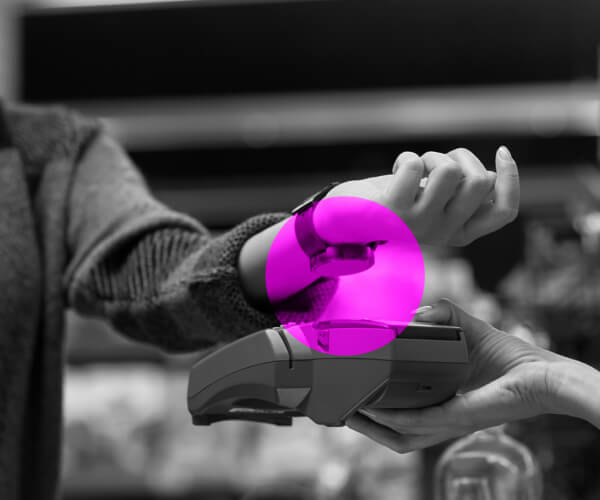At the moment, you can’t open LinkedIn without a reference to Artificial Intelligence. LinkedIn is Artificial Intelligence. Depending on who you follow and how kind the algorithm is being that day with your mix of content (hello AI!), it might be good, it might be bad, or it might be ugly. Probably, it is a myriad of all three because it should be, and it is, kind of one big mess. This is especially true when it comes to the impact on the research [or insert any other job or industry type here] sector.
 Regarding AI, I recently caught a comment referencing that ‘it’ has been around since the ’80s (it’s technically been established since the 1950s, but who is counting), with somewhat of a ‘why now’ disposition regarding the fuss, the focus and the fear. And I get it. In many ways, AI has been with us for a long time, it is everywhere, it is everything, and we have been blissfully living alongside it without concern, marvelling at how smart and efficient our phones, apps and platforms are as they get to know us and make our lives easier.
Regarding AI, I recently caught a comment referencing that ‘it’ has been around since the ’80s (it’s technically been established since the 1950s, but who is counting), with somewhat of a ‘why now’ disposition regarding the fuss, the focus and the fear. And I get it. In many ways, AI has been with us for a long time, it is everywhere, it is everything, and we have been blissfully living alongside it without concern, marvelling at how smart and efficient our phones, apps and platforms are as they get to know us and make our lives easier.
But just because something has existed for years without concern doesn’t mean it gets a pass to stay out of focus or critique. Imagine if we’d applied the same logic to cigarettes. Wow.
Having recently joined Behaviorally’s ‘Turbo Charge your Insights with AI’ event and had the honour of hosting the panel with Ari Popper, Jane Frost, Nic Umana and Adrian Sanger, I feel more committed than ever to focus on this topic and both the vast opportunities, but also the threats to us as individuals and as a sector.
There is so much to unpack and so many deeper levels to the conversation than I can cover here, so I urge you to connect with all of our speakers to follow their discourse on the topic, in the meantime, here are (just) three of my thoughts that reshape daily as the seesaw of AI continues to rock us all.
1. THE PACE OF PROGRESS
 A commonly discussed thread in this whole debate but the strongest response to the naysayers of ‘why now’ is the sheer speed at which machine learning is evolving. Shout out to Ari for introducing us to ‘Futurepedia’ (check it out!), which updates us daily on the number of new AI tools being launched every single day.
A commonly discussed thread in this whole debate but the strongest response to the naysayers of ‘why now’ is the sheer speed at which machine learning is evolving. Shout out to Ari for introducing us to ‘Futurepedia’ (check it out!), which updates us daily on the number of new AI tools being launched every single day.
Personally, I had no idea just how much it is out there and how rapidly it can be adopted. Tools that, for us, are currently a choice, in the future will become core. Ari encourages us to imagine the future and then pull back in order to innovate rather than focus on the present and project it forward. I think we need to start truly accepting, not imagining, a world where many of these tools and AI capabilities are embedded in culture, not trends and what that means for consumers.
2. EVOLUTION AND ETHICS
When it comes to using cases of AI tools to support the market research process, the options are vast, varied and rapidly increasing. With the rise of ‘synthetic consumers’ in research and tools that re-imagine the roles researchers play in projects, the debate is open around who will be impacted more. Will it be us or ‘them’ who find ourselves farther from the essence of what research truly is and who is needed to generate insight.
Beyond this, as expectations and outputs shift, there is the very real and very important debate about the ethics of AI. As Jane Frost CBE so aptly reminds us, just because we can do something, doesn’t always mean that we should. Building on this, while I believe that knowledge is power, too much knowledge and assumed knowledge based on prediction, in the wrong hands, can have powerful implications.
A scary thought. But fear not, while the future of AI in insight is ever evolving, I am confident that with both the MRS and ESOMAR now following the AI discourse and ensuring we have guardrails in place to protect people and our profession, it is reassuring to know that the future is likely not only bright for use in our profession, but safe. Beyond this, who knows, it’s on us to take personal accountability for what, how and why we use and contribute to AI! Make sure to follow the MRS and ESOMAR pages and profiles to keep up to date on the latest updates.
3. EMBRACE YOUR SET OF SKILLS
I am not Liam Neeson, but faced with the omnipotent threat of AI and the thought of a day when it has ‘taken’ over (get it?!), I will say this, “what I do have are a very particular set of skills, skills I have acquired over a very long career. Skills that make me a nightmare for people like you”.
We, as researchers and insight professionals, ARE Liam Neeson. While we know that AI is continually nudging the edges of what we do and how we do it, I deeply believe there are many, many things it cannot do as well as us, and it is these skills and areas that we as humans, and in particular as researchers need to hone in on.
 My case? In demonstrating the rapid progress of AI tools such as ChatGPT, the Harvard Business Review produced a graphic that showcased how AI is able to essentially ‘ace’ some of the most challenging academic assessments designed for people, not computers. However, performance is less impressive in one subject area, English Literature. If you’ll excuse the humble brag (ahem) as someone who received a top 5 nationwide GCSE result for English Literature across the UK, I have a hot take on this.
My case? In demonstrating the rapid progress of AI tools such as ChatGPT, the Harvard Business Review produced a graphic that showcased how AI is able to essentially ‘ace’ some of the most challenging academic assessments designed for people, not computers. However, performance is less impressive in one subject area, English Literature. If you’ll excuse the humble brag (ahem) as someone who received a top 5 nationwide GCSE result for English Literature across the UK, I have a hot take on this.
Subjects like this are much like research and insight, they don’t require you to memorise and regurgitate information, they require thinking, debate, critical evaluation and, in order to succeed, opinion and emotion. And at the foundation of this subject and these skills is a need for, you guessed it, storytelling; something humans have been doing since the dawn of time. Researchers have and need these skills in spades. Use them, sharpen them, embrace them and ensure that these skills are a nightmare for AI so that it continues to work with and for us, not against us.
FINAL THOUGHTS
As a final thought, I am reflecting on the fact that this time last year, I had very different expectations and opinions about the Metaverse (remember it?!). I am human, we all are, we are subject to change. As stated in the beginning, this space is evolving so rapidly that the conversation, implications and impact could be different in a week, yet alone a year from now.
So my advice? Stay with it, lean in; it’s happening and has the opportunity to add huge amounts of value to what we can achieve.
We’d love to talk to you about how we can help turbo charge your insights with the power of AI, so contact us today, and a member of the Behaviorally team will be in touch.
THE AUTHOR

Emma Kirk is VP of Market Development in Europe at Behaviorally and is based in the UK. Despite her British roots, Emma loves international travel and work abroad and in the last 15 years has worked in Florida, France and New York City. With a background in Psychology and Sociology, Emma loves exploring human behavior while also keeping an eye on socio-cultural trends and how they influence the consumer landscape. Fun fact, she is also a gluten-free food blogger, sharing her foodie finds with her thousands of Instagram followers!
Connect with her on Twitter @Research_Em1 or on LinkedIn.
Meet the Speakers

Aurélie Lecarpentier
Vice President, Head of Behavioral Qualitative Europe Behaviorally

Claudia Sciarretta
Global Business Services Senior Director, InsightsPepsiCo
